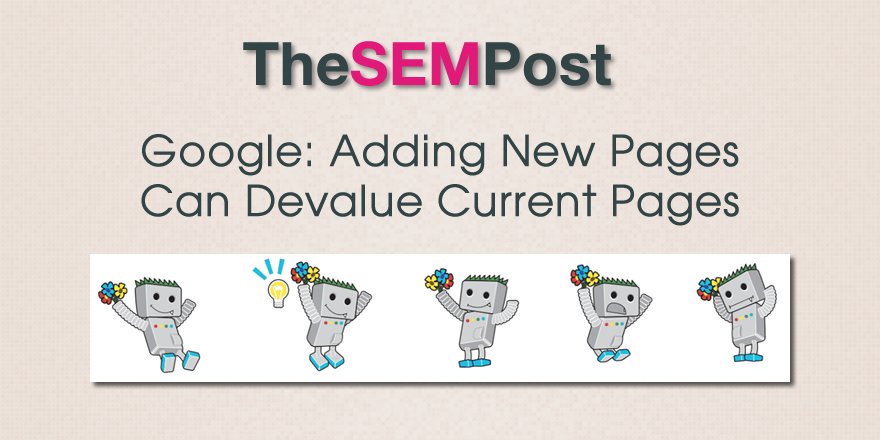 Many people believe “more is better” when it comes to adding new pages on a site, without thinking about how it could impact the pages already on the site. John Mueller addressed this in the recent Reddit AMA and specifically mentioned that sometimes adding additional pages might not be the best approach, depending on the motivation, as it can affect overall value. This is something Google doesn’t usually address directly, aside from the quality aspect of adding pages and ensuring that any pages are high quality and add value to the overall site. They don’t usually talk about its role in diluting or reducing the value of what is already there.
Many people believe “more is better” when it comes to adding new pages on a site, without thinking about how it could impact the pages already on the site. John Mueller addressed this in the recent Reddit AMA and specifically mentioned that sometimes adding additional pages might not be the best approach, depending on the motivation, as it can affect overall value. This is something Google doesn’t usually address directly, aside from the quality aspect of adding pages and ensuring that any pages are high quality and add value to the overall site. They don’t usually talk about its role in diluting or reducing the value of what is already there.
When adding new pages to a site, Mueller says they won’t miraculously rank just as well as the current pages on the site. This isn’t a surprise, after all, many of those pages have links pointing to them, both internal and external, something those new pages won’t have immediately. But he mentions the concept of value and how adding new pages can spread the value across the new and old pages, which results in all of the pages getting “a little bit less.”
This doesn’t mean that these pages won’t rank or can’t rank. As Mueller notes, “if you think you need pages to sell your products/services better, make them.” And that wouldn’t be seen as losing value if they are high quality pages. But webmasters should decide why they are adding these pages – is it to add new pages to Google or is it because site visitors will find value in these pages and want to visit them? If it is the former, you may want to rethink that strategy.
Many site owners feel the need to add pages for the sole purpose of adding more pages to Google, even if those pages aren’t the highest quality or even pages that visitors would want to visit, without thinking of the overall impact of those new pages. And even small sites can perform very well against much larger sites, so more pages isn’t a requirement to rank well in Google, or to rank for more keywords. Google has no issue with ranking a single page for a high number of keywords or a variety of keywords, if the page is high quality and has value to searchers.
It comes down to an often repeated mantra from Google – create content for users, not Google. And site owners will need to consider that “a little bit less” in their overall strategy if those pages aren’t being created purely for user value.
The full quote:
Usually you can’t just arbitrarily expand a site and expect the old pages to rank the same, and the new pages to rank as well. All else being the same, if you add pages, you spread the value across the whole set, and all of them get a little bit less. Of course, if you’re building up a business, then more of your pages can attract more attention, and you can sell more things, so usually “all else” doesn’t remain the same. At any rate, I’d build this more around your business needs — if you think you need pages to sell your products/services better, make them.
Kumarpal says
This post is for those who are adding multiple pages (for the same service) for each and every city. I had seen such a site in the past. It was a courier company and there were multiple service pages on the site with different city names. For example, courier service in New York, Courier Service in Chicago, etc. etc. Separate page for each city but the service remains the same in all cities. Service features like online courier tracking, packaging, etc. were same on all city pages. I always wonder why creating separate page for each city? Users really click them. Anyways this post will make change their mind.